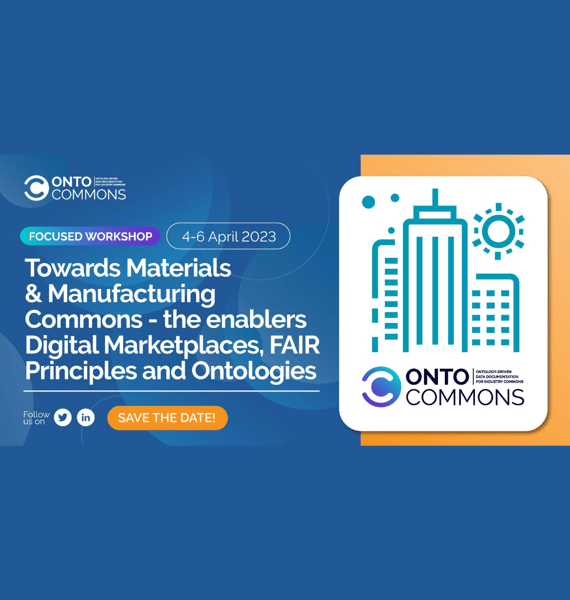OntoCommons Workshop
Home | Events | Project | FAIR-IMPACT | OntoCommons Workshop

Hybrid, 4–6 April 2023.
The ambition to facilitate data sharing and interoperability within the Materials and Manufacturing domains is the core motivation for this event. Stemming from the OntoCommons H2020 project activities, this focused workshop provides a platform for academic researchers and industrial practitioners to meet and discuss about the Materials and Manufacturing Commons* key enablers, in particular, Digital Marketplaces, FAIR Principles and Ontologies. In this workshop, the Digital Marketplaces concept and its current status of implementation will be shown in order to continue the discussion about requirements and challenges using ontologies. Tools supporting data documentation and interoperability will be showcased, and concrete challenges, success stories, as well as experiences using ontologies will be shared. A session and panel discussion on the future developments of Materials and Manufacturing Commons with focus on materials and manufacturing data spaces will round up the first part of the workshop. In the second part, the FAIR principles will be introduced and existing tools and guidelines to leverage the FAIR principles in industrial context will be identified and discussed together with experts and participants. The third day of the workshop will be dedicated to participants’ input, feedback and questions, including an open pitch session for participants. Demos of the tools provided by the ontology commons ecosystem, a virtual tour of digital marketplaces and hands-on working sessions for enhancing the FAIRness score of participants’ own ontologies will provide a tangible take-away result from the workshop. To deepen and consolidate the communication and networking between OntoCommons, the digital marketplaces, FAIR initiatives and interested users of semantic tools, this workshop is open (no registration fee) and will take place on-site at the Fraunhofer Forum Berlin (Germany).
The FAIR-IMPACT project will be showcased in Session 3: FAIR Resources for Industry.
Registration and programme information can be found on the OntoCommons website.